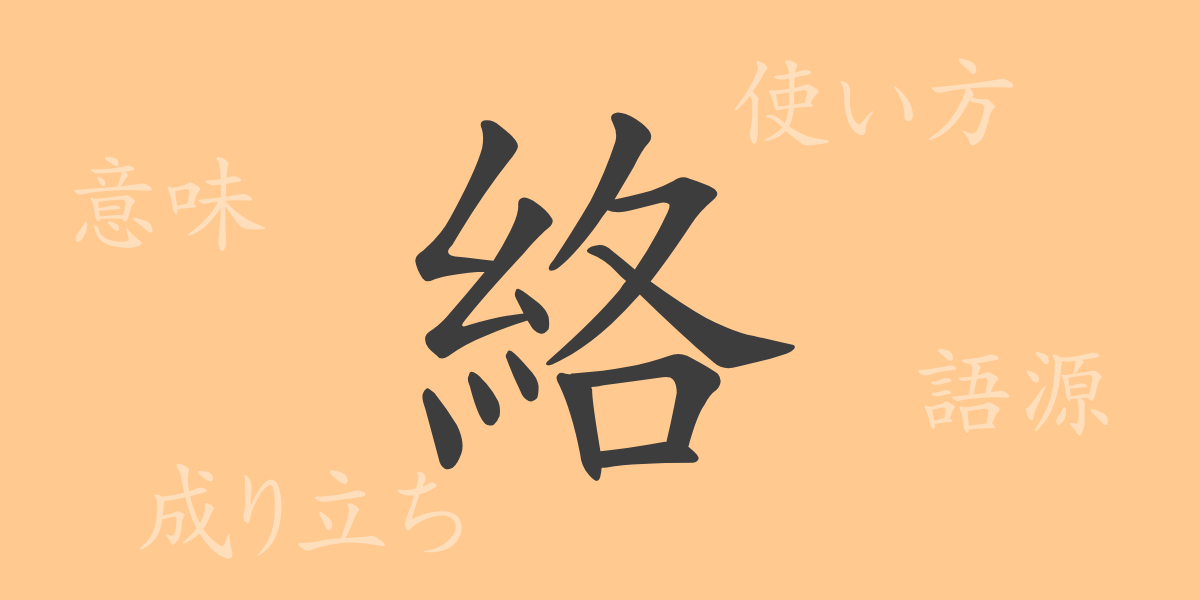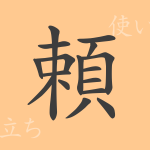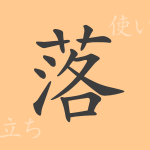Words are like threads weaving the fabric of culture and history. In the Japanese language, this is true even for individual kanji characters. Today, we focus on the kanji “絡” (らく, raku). While it is frequently used in daily life, opportunities to deeply understand its origin and diverse uses might be surprisingly rare. In this article, we delve into the origins of “絡” (らく, raku), its modern applications, and the idioms and proverbs that resonate in the hearts of the Japanese people, unveiling its charm.
The Origin of “絡” (語源, Gogen)
The kanji “絡” (らく, raku) symbolizes the intertwining of threads. In ancient China, weaving was a significant industry, leading to the creation of many kanji related to threads. “絡” (らく, raku) is one such character, originally signifying the intertwining of threads and later extending to represent the entanglement of people or things.
Meaning and Usage of “絡” (らく, raku)
In modern Japanese, “絡” (らく, raku) is widely used to mean “to be involved” or “to intertwine.” It is used not only for physical entanglement but also to describe complex human relationships or problems. For instance, expressions like “問題が絡み合っている” (もんだいがからみあっている, mondai ga karamiatteiru) meaning “the problems are intertwined” or “彼はその事件に絡んでいる” (かれはそのじけんにからんでいる, kare wa sono jiken ni karandeiru) meaning “he is involved in that incident” are common.
Reading, Stroke Count, and Radical of “絡” (らく, raku)
“絡” (らく, raku) is a commonly used kanji in daily Japanese life.
- Reading: The on’yomi (音読み, onyomi) is “ラク” (らく, raku), and the kun’yomi (訓読み, kunyomi) is “からむ” (からむ, karamu) and “からみ” (からみ, karami).
- Stroke Count: “絡” (らく, raku) has 12 strokes.
- Radical: The radical is 糸部 (いとへん, itohen), meaning “thread.”
Idioms, Idiomatic Expressions, and Proverbs Using “絡” (らく, raku)
Idioms, idiomatic expressions, and proverbs containing “絡” (らく, raku) enrich the Japanese language. For example, “絡繰り” (からくり, karakuri) means a mechanism or device, often referring to a clever contraption that surprises people. Additionally, expressions like “情報が絡む” (じょうほうがからむ, jouhou ga karamu) meaning “information is involved” or “金銭が絡む” (きんせんがからむ, kinsen ga karamu) meaning “money is involved” indicate the significant intertwining of information or money. The proverb “糸を絡むよう” (いとをからむよう, ito wo karamu you) describes a situation where things are intricately entangled.
Summary of “絡” (らく, raku)
The kanji “絡” (らく, raku), as its form suggests, is apt for expressing the entanglement of things. Its use in Japanese spans from physical meanings to human relationships and abstract concepts. The rich expressive power of this single character reflects the depth of the Japanese language. Next time you encounter “絡” (らく, raku) in daily communication, it might be intriguing to recall its historical and meaningful background.

























